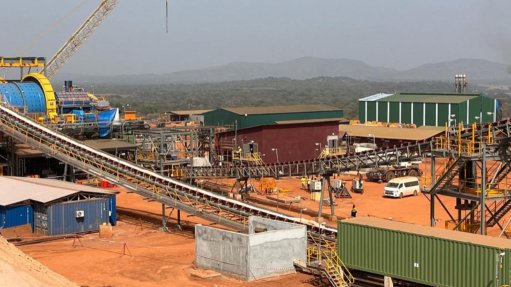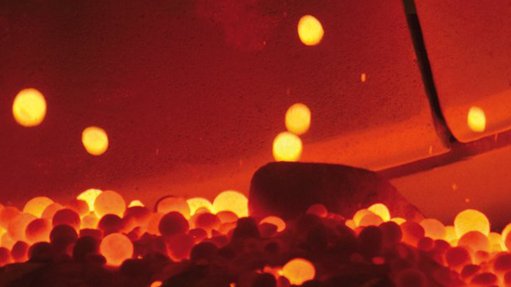More women, better technical skills vital for mining future
Local companies should focus on employing more women in the mining sector, MSA Group human resources manager Claire McMaster says.
She stresses that profit margins are higher for mining companies with women on the board, which is consistent with the findings of a study by Catalyst, which found that companies with female board representation also had higher returns on sales, invested capital and equity.
Similarly, a study by the Credit Suisse Research Institute found that companies with women on their boards have a higher return on equity, lower gearing, higher price/book value and better-than-average growth.
McMaster is also chairperson of Women in Mining South Africa, a not for profit association representing the women working in the mining industry and offering a collection of tools to support their growth in this industry.
“Mining companies listed on the JSE had the best level of female board representation, while those listed on the LSE had the worst level of representation. University representation in South Africa is also improving at almost 50% levels and in some cases more. At the end of the first quarter of this year, a Department of Mineral Resources report revealed that women in mining made up 11% of people employed in the industry overall, but more can be done,” she says.
McMaster, who will address next week’s Joburg Indaba: Investment in Resources and Mining in Africa event, says women in the mining industry face a number of challenges.
Managing company requirements to create flexible working environments is a challenge that is often easier said than done. “We are currently conducting our own research into this question and are looking for successful and not so successful stories to showcase.”
The project also asks women in the industry what they are doing to take advantage of the initiatives on offer.
Further, navigating male-dominated working cultures is often cited as a barrier to promotion. “Our current research is looking at what lies behind attitudes (fear and conditioning, besides others) and how to tackle this.
“Women report being excluded from informal networks, which stifles career growth. Developing confidence, self-esteem and assertiveness are required to operate at a more male-dominated, senior and decision-making level. A number of our members also bemoan the lack of strong mentors and women in leadership positions available to them and, of course, infrastructure and equipment design.”
Deloitte conducted research (WIMSA Deloitte Insomnia Index) and concluded that women battle with the male-dominated culture of the industry and the associated glass ceiling for women in terms of career growth. It also noted that legislation has not always been supportive of women in the industry, for example, when women were not allowed to work underground. The lack of support of women has also contributed to a challenge in retaining female talent as they often move to other industries.
McMaster says women can be effective in changing the industry, especially when they are in leadership positions. “They need to raise awareness of the existing issues, develop their skills sufficiently to demonstrate competence and women need to support each other – be positive role models for younger women coming into the organisation and share their experiences.”
She concludes that mining houses need to accommodate and motivate for more women to take up senior executive positions in mining companies.
“They can then provide stronger career development to women. South Africa is doing comparably well in this area in comparison to the UK (WIM UK Report). They can also provide professional coaching support and assign women in leadership roles to senior mentors (men or women).”
RESOURCING CRISIS
According to Wits University Mining Engineering School head Professor Fred Cawood almost all current students are historically disadvantaged. About 60 graduates this year and 100 graduates next year will become qualified as mining engineers, compared with 30 graduates a year ten years ago.
“Transformation is not the challenge,” he says, “nor is creating new mining engineers or investment in the upper level graduates; rather, the crisis is in the lack of mid- to lower-level skilled technicians and artisans being created by and for the mining industry.” Cawood says South Africa needs more technikons and mining schools to produce more graduates with higher certificates and diplomas in mining technical skills.
“The biggest crisis in the gold and platinum mines is pay disputes as a result of the deep and challenging mining conditions but, in order to be sustainable, these mines need to mechanise for deep mining to go where human workers cannot.”
“Yet they cannot mechanise with the current labour force because they are not skilled enough to operate the complicated and expensive new machines that come with mechanisation. Mines need to strike a pact with labour to reskill their work force to come up to a skilled enough standard to operate a fully mechanised mine.”
Cawood says South Africa needs to train more technicians and artisans across the country. At least one mining further education and training school is needed in every province, as is a mining school at the technician level at each of the two new universities that are currently planned. “We need to see the same kind of investment we are seeing in the upper level graduates going into the mid and lower levels as, currently, there are too many ‘chiefs’ and too few ‘indians’ for mechanisation to work sustainably.”
The clock is ticking, says Cawood, noting that if more investment is not put into mid and lower level technical training, mines will become unsustainable and cease to be viable within 20 years’ time.
Meeting the demands of skills in the mining sector is one of the many issues that will be discussed at the 2013 Joburg Indaba: Investing in Resources and Mining in Africa, taking place from October 29 to 31 at The Hilton, Sandton. For more information go to www.joburgindaba.com.
Article Enquiry
Email Article
Save Article
Feedback
To advertise email advertising@creamermedia.co.za or click here
Press Office
Announcements
What's On
Subscribe to improve your user experience...
Option 1 (equivalent of R125 a month):
Receive a weekly copy of Creamer Media's Engineering News & Mining Weekly magazine
(print copy for those in South Africa and e-magazine for those outside of South Africa)
Receive daily email newsletters
Access to full search results
Access archive of magazine back copies
Access to Projects in Progress
Access to ONE Research Report of your choice in PDF format
Option 2 (equivalent of R375 a month):
All benefits from Option 1
PLUS
Access to Creamer Media's Research Channel Africa for ALL Research Reports, in PDF format, on various industrial and mining sectors
including Electricity; Water; Energy Transition; Hydrogen; Roads, Rail and Ports; Coal; Gold; Platinum; Battery Metals; etc.
Already a subscriber?
Forgotten your password?
Receive weekly copy of Creamer Media's Engineering News & Mining Weekly magazine (print copy for those in South Africa and e-magazine for those outside of South Africa)
➕
Recieve daily email newsletters
➕
Access to full search results
➕
Access archive of magazine back copies
➕
Access to Projects in Progress
➕
Access to ONE Research Report of your choice in PDF format
RESEARCH CHANNEL AFRICA
R4500 (equivalent of R375 a month)
SUBSCRIBEAll benefits from Option 1
➕
Access to Creamer Media's Research Channel Africa for ALL Research Reports on various industrial and mining sectors, in PDF format, including on:
Electricity
➕
Water
➕
Energy Transition
➕
Hydrogen
➕
Roads, Rail and Ports
➕
Coal
➕
Gold
➕
Platinum
➕
Battery Metals
➕
etc.
Receive all benefits from Option 1 or Option 2 delivered to numerous people at your company
➕
Multiple User names and Passwords for simultaneous log-ins
➕
Intranet integration access to all in your organisation


















